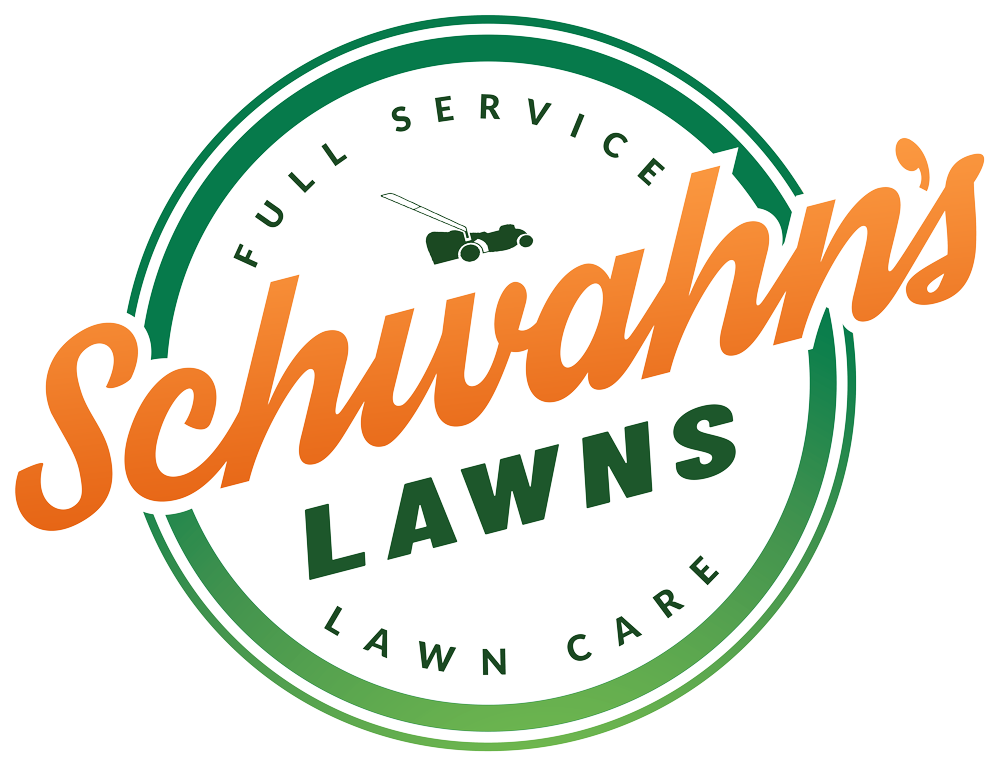By the Certified Organic Specialists at Schwahn’s Lawns | September 2025
With over 20 years of experience in sustainable lawn care practices, our team has helped hundreds of Tarpon Springs families achieve beautiful, healthy lawns using safe, organic methods that protect children, pets, and the local environment.
🌱 Why Tarpon Springs Homeowners Are Choosing Organic
In a community known for its pristine waterfront properties and strong Greek heritage focused on natural living, organic lawn care aligns perfectly with Tarpon Springs’ values. From luxury Cypress Run estates to charming downtown neighborhoods, residents are discovering that organic methods create healthier, more resilient lawns while protecting the Anclote River and local ecosystems.
Organic lawn care in Tarpon Springs isn’t just a trend—it’s a smart choice for homeowners who want beautiful results without compromising their family’s safety or environmental responsibility. As awareness grows about the impact of synthetic chemicals on both human health and local waterways, more residents are turning to proven organic alternatives that work exceptionally well in Florida’s coastal climate.
Ready to Go Organic?
Transform your Tarpon Springs lawn with safe, effective organic care programs.
Understanding Organic Lawn Care: Beyond Chemical-Free
True organic lawn care involves more than simply avoiding synthetic chemicals. It’s a holistic approach that focuses on building healthy soil ecosystems, promoting natural pest resistance, and creating sustainable growing conditions that result in stronger, more resilient lawns.
The Science Behind Organic Success
Organic methods work by:
- Building soil biology: Beneficial microorganisms improve nutrient availability
- Enhancing root development: Organic matter improves soil structure and water retention
- Creating natural resistance: Healthy plants naturally resist pests and diseases
- Improving long-term sustainability: Methods that work with natural processes
✨ Proven Benefits for Tarpon Springs Properties
- Safe for children and pets: No toxic residues or harmful chemicals
- Environmental protection: Safeguards the Anclote River and local wildlife
- Long-term cost savings: Healthier soil reduces future treatment needs
- Improved soil health: Better water retention in sandy coastal soils
- Natural pest resistance: Strong plants resist chinch bugs and other pests
- Property value enhancement: Organic certification appeals to eco-conscious buyers
Why Organic Works Exceptionally Well in Tarpon Springs
Coastal Climate Advantages
Tarpon Springs’ unique coastal environment actually enhances the effectiveness of organic lawn care methods:
- Sandy soil compatibility: Organic matter dramatically improves sandy soil structure
- Salt air tolerance: Organic treatments help grass resist salt damage
- Humidity benefits: High humidity accelerates organic matter decomposition
- Year-round growing season: Continuous organic feeding supports constant growth
Perfect for Historic Properties
Many of Tarpon Springs’ historic and waterfront properties benefit particularly from organic care because:
- Mature landscaping responds well to gentle, natural treatments
- Established root systems efficiently utilize organic nutrients
- Older irrigation systems work better with improved soil water retention
- Historic property values are enhanced by sustainable practices
🏆 Success Story: Cypress Run Estate
A 15,000 square foot luxury property in Cypress Run switched to organic care after years of synthetic chemical treatments. Within six months, the homeowner reported:
- ✓ Significant reduction in chinch bug damage
- ✓ Improved drought tolerance saving 30% on irrigation
- ✓ Children and pets safely enjoying the lawn immediately after treatments
- ✓ Enhanced curb appeal with richer, more consistent green color
Organic vs. Synthetic: The Real Comparison
| Aspect | Organic Methods | Synthetic Chemicals |
|---|---|---|
| Safety | Safe for families, pets, wildlife | Requires waiting periods, potential health risks |
| Environmental Impact | Protects waterways, supports beneficial insects | Can cause runoff, harm non-target species |
| Initial Results | 2-4 weeks for visible improvement | 7-14 days for visible results |
| Long-term Effectiveness | Builds soil health, lasting improvements | Temporary fixes, requires frequent reapplication |
| Cost Over Time | Higher initial, lower long-term costs | Lower initial, higher ongoing costs |
| Soil Health | Improves soil biology and structure | Can deplete beneficial microorganisms |
Myth Buster: “Organic doesn’t work as well”
Reality: University of Florida studies show that properly applied organic programs produce lawn quality equal to or superior to synthetic programs after the first growing season. The key is professional application with high-quality organic products designed for Florida conditions.
The Organic Transformation Timeline
Understanding what to expect during the transition to organic care helps set realistic expectations and demonstrates the progressive improvements you’ll see in your Tarpon Springs lawn.
Week 1-2
Initial Application
Soil testing, initial organic fertilizer application, beneficial microorganism introduction
Week 3-6
Early Changes
Improved soil structure, initial color enhancement, reduced compaction
Month 2-3
Visible Results
Noticeably greener color, improved drought tolerance, reduced pest issues
Month 4-6
Full Benefits
Thick, healthy turf, excellent color, natural pest resistance, reduced watering needs
Month 12+
Long-term Success
Self-sustaining lawn health, minimal inputs required, maximum beauty
Organic Solutions for Common Tarpon Springs Lawn Challenges
Sandy Soil Improvement
Tarpon Springs’ sandy soils drain quickly and struggle to retain nutrients. Organic solutions include:
- Compost applications: 1/4 inch annually improves soil structure
- Organic mulching: Retains moisture and adds nutrients
- Mycorrhizal inoculants: Beneficial fungi extend root networks
- Slow-release organic fertilizers: Provide steady nutrition over time
Salt Damage Prevention
Coastal properties face ongoing salt exposure. Organic approaches help:
- Gypsum applications: Natural soil amendment improves salt tolerance
- Organic matter increases: Buffer against salt stress
- Deep root development: Access to fresher groundwater
- Natural chelated nutrients: Remain available despite salt interference
Pest Management Without Chemicals
Organic pest control focuses on prevention and natural solutions:
Chinch Bug Control
- Beneficial nematodes: Natural predators eliminate grubs and larvae
- Organic pyrethrins: Plant-based insecticides when needed
- Stress reduction: Healthy grass naturally resists infestations
- Cultural practices: Proper watering and mowing prevent outbreaks
Fungal Disease Prevention
- Compost tea applications: Beneficial microorganisms compete with pathogens
- Proper air circulation: Reduces humidity around grass blades
- Organic fungicides: Copper-based and botanical treatments when necessary
- Resistant grass varieties: Selection of naturally disease-resistant cultivars
Professional vs. DIY Organic Care
DIY Challenges: Limited access to commercial-grade organic products, difficulty timing applications, lack of soil testing equipment, pest identification challenges.
Professional Advantages: Access to university-tested organic products, certified organic specialists, comprehensive soil analysis, guaranteed results, time savings of 4-6 hours weekly.
Seasonal Organic Care Schedule for Tarpon Springs
Spring (March – May): Foundation Building
- Soil testing and amendment: Establish optimal pH and nutrient levels
- Pre-emergent organic herbicides: Corn gluten meal for weed prevention
- First fertilization: Balanced organic fertilizer with micronutrients
- Compost topdressing: 1/4 inch application improves soil biology
Summer (June – August): Maintenance Focus
- Iron applications: Kelp meal and iron sulfate maintain green color
- Beneficial microorganism boost: Monthly applications during growing season
- Organic pest monitoring: Early detection prevents major infestations
- Deep watering practices: Encourage deep root development
Fall (September – November): Recovery and Prep
- Fall fertilization: Organic winter preparation fertilizer
- Overseed thin areas: Organic seed coated with mycorrhizal inoculants
- Organic disease prevention: Compost tea applications
- Soil conditioning: Final organic matter additions
Winter (December – February): Gentle Maintenance
- Reduced feeding: Light organic applications if needed
- Cold protection: Organic anti-desiccant sprays for sensitive areas
- Planning and preparation: Soil testing and program adjustment
- Equipment maintenance: Prepare for spring organic applications
Transform Your Tarpon Springs Lawn Organically
Join the growing number of families enjoying safe, beautiful lawns through professional organic care.
Our organic consultation includes:
- ✓ Comprehensive soil testing and analysis
- ✓ Custom organic treatment plan for your property
- ✓ Cost comparison with synthetic alternatives
- ✓ Timeline for expected results and improvements
- ✓ Safety certification and environmental benefits review
Schedule Your Organic Lawn Consultation
Call 561-325-9537 or 727-373-6985
Organic Lawn Care Investment and Value
Cost Considerations
While organic lawn care may have higher initial costs, the long-term value proposition is compelling:
Year 1-2 Investment
- Organic programs: $800-$1,200 annually (average 5,000 sq ft property)
- Synthetic programs: $600-$900 annually
- Difference: $200-$300 additional investment
Year 3+ Savings
- Reduced pest treatment needs: $150-$300 annual savings
- Lower irrigation costs: $200-$400 annual savings
- Fewer lawn renovations needed: $500-$1,500 every 5 years
- Net result: Lower long-term costs with superior results
Property Value Enhancement
Organic lawn certification adds measurable value:
- Eco-conscious buyers pay premiums of 3-7% for certified organic properties
- Improved curb appeal increases property marketability
- Documented sustainable practices appeal to luxury homebuyers
- Lower maintenance requirements attract investors
Choosing the Right Organic Lawn Care Partner
Success with organic lawn care depends heavily on proper implementation by knowledgeable professionals. When selecting an organic lawn care provider in Tarpon Springs, consider:
Essential Qualifications
- Organic certification: Look for NOFA or similar organic credentials
- Local experience: Minimum 5+ years with Florida organic methods
- Soil testing capabilities: Regular testing and adjustment programs
- Integrated approach: Combines multiple organic strategies
- Guarantee policies: Stands behind organic program results
Red Flags to Avoid
- Companies claiming “instant organic results”
- Providers without proper organic product licensing
- Services that don’t include soil testing
- Companies with limited Florida coastal experience
- Providers unwilling to explain their organic methods
For comprehensive lawn care guidance, see our complete guide to year-round lawn care in Pinellas County, or explore our professional vs. DIY comparison to understand the full value of expert organic care.
About Schwahn’s Organic Lawn Care Program
Schwahn’s Lawns has been a pioneer in organic lawn care throughout Tarpon Springs and Pinellas County for over a decade. Our certified organic specialists use university-tested products and methods specifically designed for Florida’s coastal environment.
Organic Services Include:
- • Certified organic fertilization programs
- • Natural pest and disease management
- • Soil health restoration and maintenance
- • Organic weed control solutions
- • Environmental compliance and reporting
Learn more about our comprehensive organic lawn care services or explore our full range of professional lawn care offerings.


